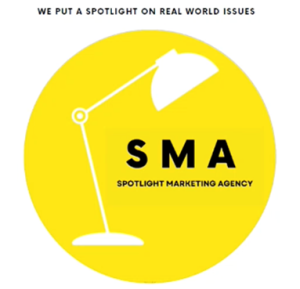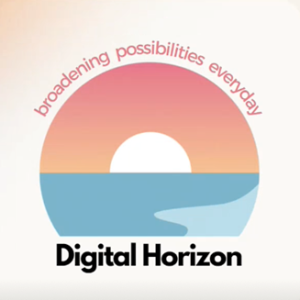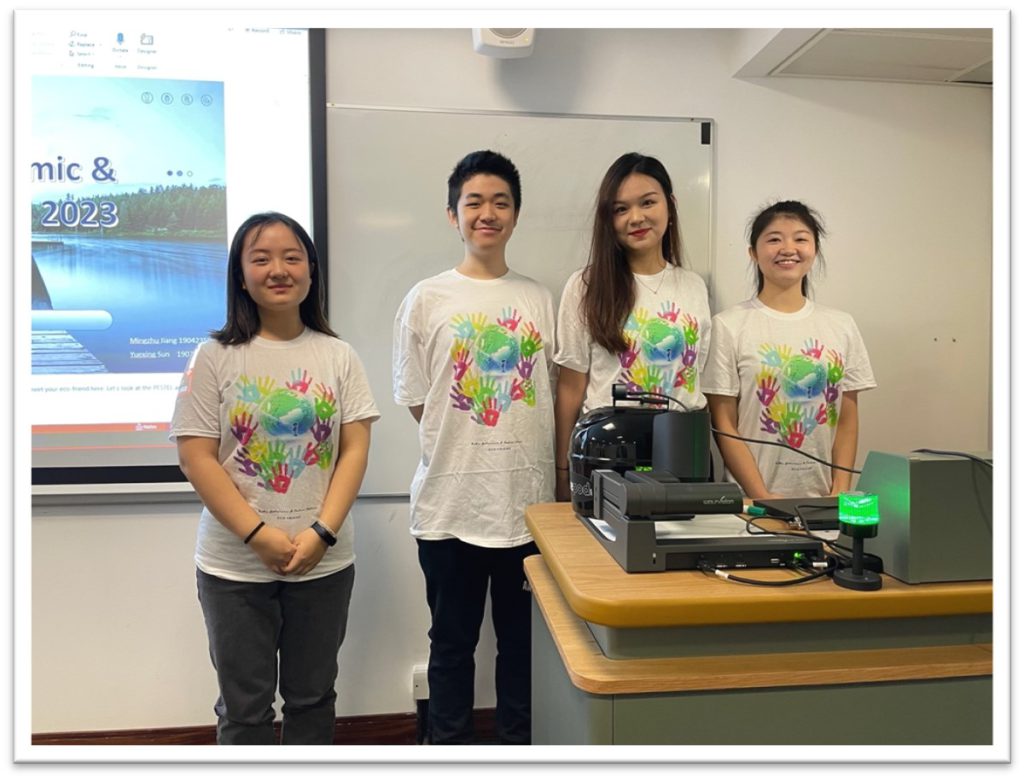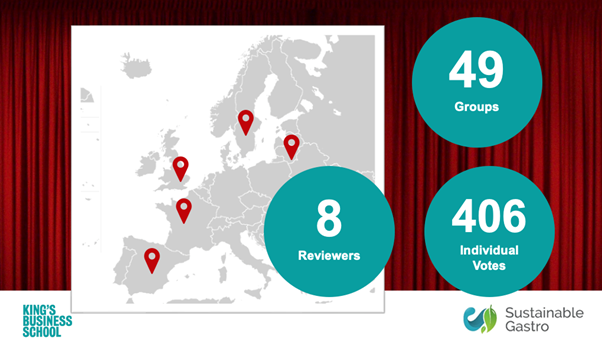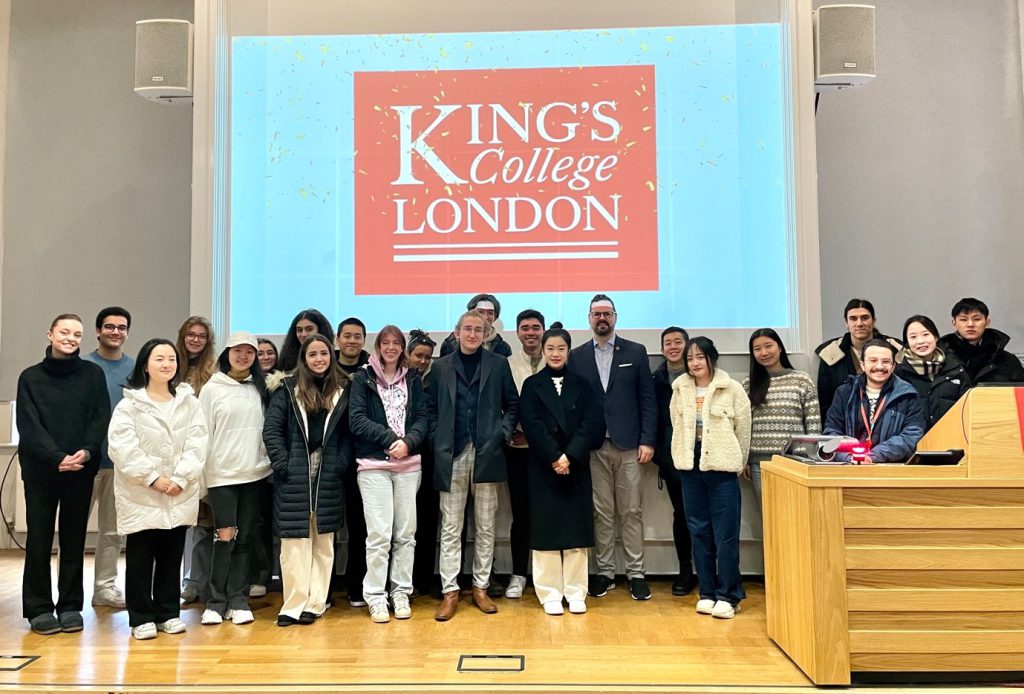This Education for Sustainability case study is from Dr Romas Malevicius, Lecturer (Assistant Professor) in Marketing at King’s Business School. He is passionate about education for sustainability and is interested in embedding sustainability in the curriculum. He was appointed in March 2022 to lead Level 6 undergraduate International Marketing module with 200 students.
“Authentic assessment and project-based learning brings real clients and real examples into the classroom and empowers students not just to complete the work and do well, but at the same time to feel that they’re doing something meaningful to address global challenges.”
| Sustainable development goals addressed | Sustainability competencies addressed |
|---|---|
| 12. Responsible consumption and production. Students develop marketing campaigns for events promoting sustainable food and fashion.
4. Quality education. Project-based assessment for lifelong learning. 13. Climate Action. Students investigate the impact of climate change on the food and fashion industries.
|
Systems thinking. Analysing a national context for sustainable food and fashion marketing campaigns.
Strategic thinking. Collectively bringing about food and fashion sustainability events. Normative competency. Understanding how to market a sustainability event to a target audience. Critical thinking. Critically evaluating challenges and opportunities in supply chains, manufacturing, consumer behaviour, waste disposal and recycling. Collaborative competency. Working in teams and engaging in collaborative and participatory problem-solving. |
What is the purpose of your module and why is sustainability important to it?
The module teaches the theory and practice of international marketing – strategy, planning and consumer behaviour. Key elements are internationalisation, branding, creativity and building partnerships. King’s is part of Principles of Responsible Management Education (PRME) and Education for Sustainability is a research interest of mine, so when I took up leadership of this module, I naturally looked for ways to embed these principles into my learning and teaching practice.
I generally tend to do the groundwork to find an organisation with a marketing problem for students to work on. To bring in sustainability I look for organisations with a strong social and/or environmental sustainability focus – in fact, my friend introduced me to the founder of Sustainable Gastro, Jennifer Avci. We share objectives – they organise events and dialogues in Baltic countries to address our broken food systems and challenges and opportunities in the fashion industry.
What do students do?
I put my students in groups to collaborate in the role of a marketing agency. They have to promote a sustainable food or fashion event in one of three Baltic countries: Lithuania, Latvia or Estonia. They’re analysing the national context of the country they’ve chosen, using marketing methods to target a particular audience and persuade them to come to a sustainable food or fashion event. They’re putting their branding knowledge to work on logos, posters, taglines and social media campaigns for their event. Additionally, students have to create a promotional video for the target audience.
Some of the visual branding created by International Marketing students in 2023
How do you assess the work?
I keep with the Education for Sustainability emphasis on authentic assessment and project- or problem-based learning. The assignment brief was designed in consultation with the founder of Sustainable Gastro, Jennifer Avci. The groups produce a Pecha Kucha presentation with a one-minute promotional campaign video for a particular target audience and an individual report. I highlight the Sustainable Development Goals in the assessment brief, and many students have foregrounded them in their work. There are two elements of peer assessment. They assess each other’s contribution to the group work, and they also vote on which groups should be given a Student Voice Award for the best presentation. Presentations are in hybrid format on campus and streamed to eight international industry experts and academics, our external expert reviewers. Students fed back that they found the written comments from experts extremely valuable alongside the overall feedback they received. The prospect of the expert reviewers and The Student Voice Awards motivated them to participate actively in the module.
What support do students need?
I’m building in complexity and choice so that students have the opportunity to select a topic they are passionate about and oversee their own learning. I tend to bring uncertainty – an authentic quality and crucial for employability, but needing support. Because of this element of choice, the first assessment brief was one of the longest I ever wrote, and some students struggled to get started.
Students who are good at research may need encouragement with the more creative aspects of the assessment. I give them some famous marketing campaign examples for inspiration but avoid anything too close to the Sustainable Gastro brief because I want them to be original and creative. Teamwork and presenting are essentials for students’ employability, so I coach them about the format of the PechaKucha and about how to overcome nerves when presenting.
They also have resources about methods, including a mid-semester checklist to help them focus. And towards the deadline, they are making excellent use of my office hours. I take an organic approach to the groups – these are final-year undergraduates, so I didn’t want to micromanage them with team agreements or record-keeping, though I did coach them about what intervened if I knew that somebody wasn’t contributing.
What benefits did you see?
The variety in the videos they made was inspired. What they achieved is amazing, and the diversity of presentations was great – one group combined pecha kucha and role play. I was very pleased to receive highly favourable remarks from the client and reviewers. Sustainable Gastro has decided to increase its focus on sustainable food and is planning a series of events – students have already attended three further meetings about organising those. Around 60% of students said they wanted to carry on working with Sustainable Gastro. For the first time, I submitted some of the group videos to the Principles of Responsible Management Education writing competition and three groups were shortlisted as finalists. This was the first win for King’s.
Project-based learning in groups with case scenarios in the real world gives students something meaningful to do and a reason to deepen their knowledge. Their feedback tells me that the opportunity to influence these changes motivated their engagement with the module.
What are your next steps?
I’m thinking about ways to strengthen students-as-partners relationships in ways that keep students engaged with sustainability marketing. That’s often a matter of starting off quite broad and open to possibilities and having discussions to narrow down our decisions about purposes, what to work on, and ways to work together. I want students to gain real experiences in marketing sustainability and produce creative work that they can show to their future employers. I also working on supporting students with the dynamics of presenting and communicating as a team.

